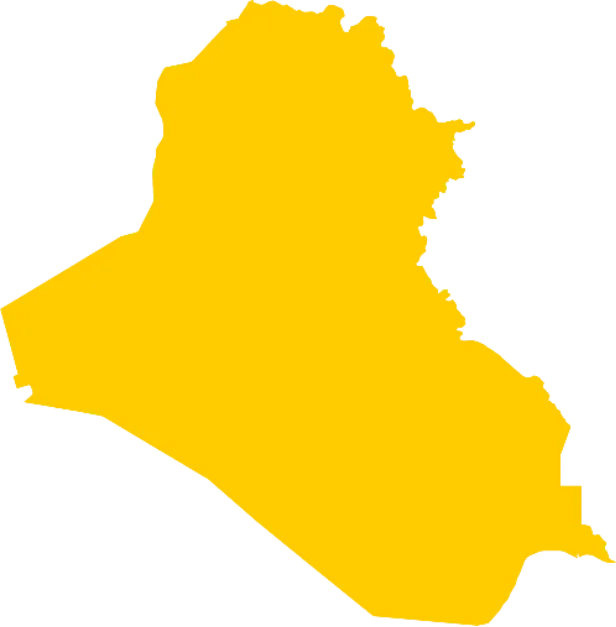Iraq

Iraq
Iraq holds profound religious, historical, and cultural significance. It is home to some of the holiest sites in Shia Islam, particularly in the cities of Najaf and Karbala.
Religious and Political Influence
Shia clerical leadership has a significant role in Iraq. The religious establishment in Najaf, particularly the Hawza (Shia seminary), is an influential center of learning, shaping religious thought and political guidance.
Leaders like Grand Ayatollah Ali al-Sistani hold moral and spiritual authority among Shia Iraqis and beyond.
Post-Saddam Era
After the fall of Saddam Hussein’s regime in 2003, Iraq’s Shia majority gained political influence, leading to the establishment of a government with strong Shia representation. This has reshaped Iraq’s political landscape, though the country has faced challenges with sectarian violence, instability, and external influences.
In summary, Iraq, from a Shia perspective, is a spiritual heartland, a place of pilgrimage, and a center of religious authority, while also being a nation that has undergone significant political transformation, especially in the post-2003 era.
Najaf
Najaf is one of the holiest cities in Shia Islam, located in central Iraq. It is considered the spiritual and religious heart of Shia Muslims due to its association with Imam Ali ibn Abi Talib, the first cousin of the Prophet Muhammad and the first Imam of Shia Islam. Imam Ali’s shrine, located in Najaf, is a major pilgrimage site for millions of Shia Muslims from around the world, who visit to seek blessings and pay respects.
Najaf holds great theological significance in Shia Islam, as it is seen as the center of Shia scholarship. The city is home to many prominent religious seminaries and is a hub for Islamic studies, where scholars (mujtahids) issue religious rulings. The city’s rich history of theological debate, jurisprudence, and the development of Shia doctrine makes it a place of deep intellectual importance as well.
Karbala
Karbala is one of the most significant cities in Shia Islam, located in central Iraq.
It is the site of the Battle of Karbala (680 CE)
where Imam Hussain ibn Ali, the grandson of the Prophet Muhammad,
was martyred along with his family and companions.
Imam Hussain’s stand against the tyranny of the Umayyad caliph Yazid is seen by
Shia Muslims as a profound act of resistance for justice, righteousness,
and the protection of Islam’s true values.
The shrine of Imam Hussain, located in Karbala,is one of the most visited pilgrimage
sites in the Muslim world,especially during the annual commemoration of Ashura,
the day of Imam Hussain’s martyrdom.
For Shia Muslims, Karbala represents the ultimate symbol of sacrifice,moral integrity,
and the fight against oppression.The events of Karbala have deep spiritual
and emotional significance,serving as a source of inspiration
for Shia Muslims in their ownstruggles for justice and human rights.
Karbala’s legacy also plays a central role in shaping Shia religious practices,
including rituals of mourning (matam) and public processions,
which are expressions of solidarity with Imam Hussain’s sacrifice.
The city is not only a place of historical importance but also a
focal point of Shia identity, faith, and devotion.
Kazmain
Kazmain (also spelled Kadhimayn) is a sacred city in Iraq, significant in Shia Islam,
located in the capital Baghdad.
It is home to the shrines of Imam Musa al-Kadhim (the 7th Shia Imam)
and Imam Ali al-Ridha (the 8th Shia Imam), two of the twelve Imams revered
by Shia Muslims. The name “Kazmain” is derived from “the two Kadhims,”
referring to the two Imams who are buried in the city.
For Shia Muslims, Kazmain holds great spiritual importance due to the
revered status of its two Imams. Imam Musa al-Kadhim, known for his patience
and piety, endured imprisonment under the Abbasid caliphate and became a
symbol of endurance in the face of oppression. Imam Ali al-Ridha,
while a key figure in Shia Islam, is also revered for his scholarship and role
in theological debates during the Abbasid era.
The shrines in Kazmain are major pilgrimage sites for Shia Muslims,
especially on special occasions such as the birthdays and martyrdom
anniversaries of the Imams. The city serves as an important center of Shia
religious life, offering both spiritual significance and a deep connection
to the history and teachings of the Ahl al-Bayt (the family of the
Prophet Muhammad).
